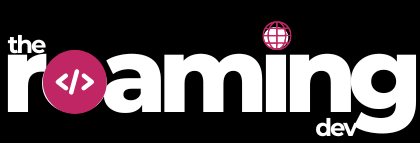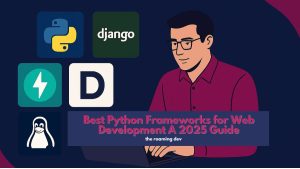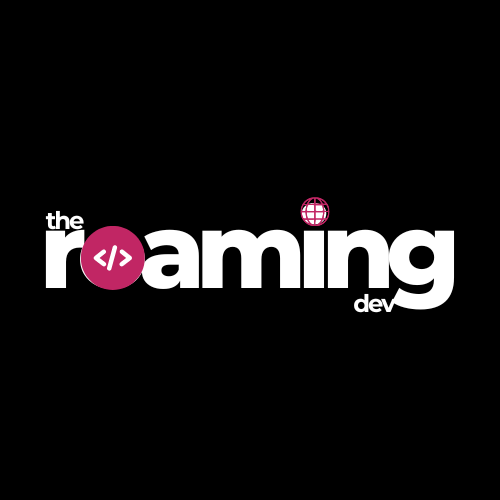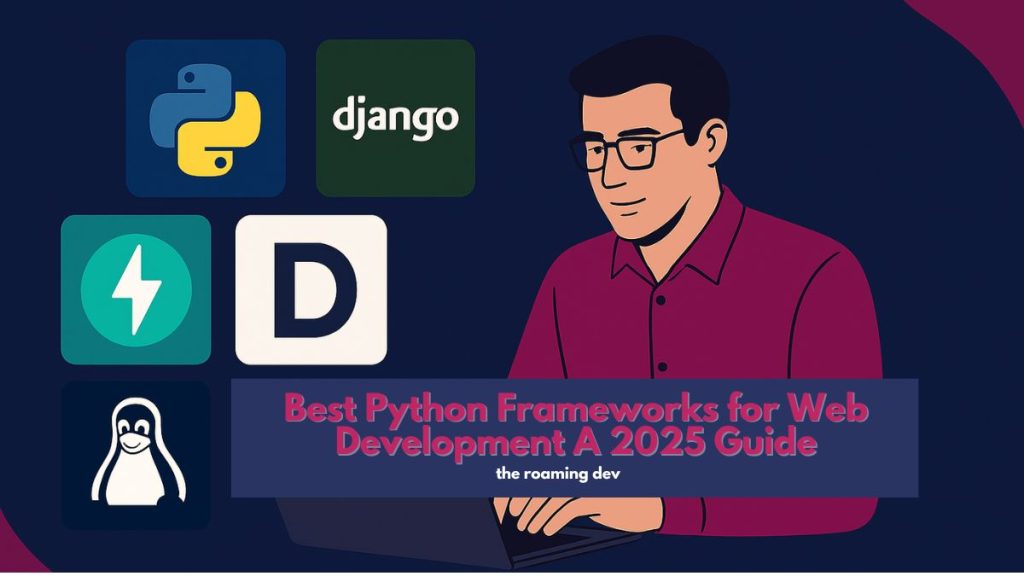Welcome to the ever-evolving world of Python web development. With over 16 million Python developers globally, Python continues to thrive as one of the most useful programming languages.
It is a favorite for machine learning engineers, data scientists, and even backend developers because of its powerful ecosystem and simplicity.
With frameworks that cater to various use cases, from data visualization to full-stack web development, Python offers everything that a developer needs.
Developers now have a wide range of options when handling their digital projects, thanks to its vibrant community and robust ecosystem.
The only issue that you may encounter while working with Python is that there are several choices to make, which can complicate things.
But don’t worry. That is the reason we reviewed the best Python frameworks for web development to help you finish your projects faster and more efficiently.
The good thing is that we will look at the strengths and weaknesses of each framework, simplifying selection for you. So, read on to learn more.
The Best Python Frameworks
1. Django
Django is one of the best Python frameworks that is a perennial favorite for many developers.
Its popularity remains unrivaled because it offers a robust and all-encompassing toolkit for web development.
Some of its powerful features include the Model-View-Controller (MVC) design pattern.
It also boasts other useful features like form handling, database access, security, user authentication, and internationalization.
Some popular users of Django are Instagram and Pinterest.
Advantages
- High development efficiency with several functional components
- Impressive security with comprehensive security features
- High code maintainability
- Extensive plugin system
Disadvantages
- Poor flexibility in design
- Steep learning curve
2. Flask
Flask is a Python-based microframework that is useful for backend web development.
While it is a micro-framework, its use is not limited to small web apps.
So, don’t let the term micro deceive you. In fact, big players have used it to develop their platforms.
Some popular users of Flask are Airbnb, Netflix, and Reddit.
Advantages
- High flexibility
- High development efficiency
- Low learning curve
Disadvantages
- Poor security
- Fewer features
3. FastAPI
As its name may suggest, FastAPI is a micro-framework that can help you build high-performance web APIs with Python.
The framework is based on Uvicorn, an Asynchronous Server Gateway Interface (ASGI) server, as well as Starlette.
Despite being relatively new on the market, FastAPI has risen to become a popular tool for many developers.
That is why we ranked it highly on this list of the best Python frameworks.
Advantages
- Excellent performance
- Low error rate
- High development efficiency with ease
- Rich documentation with auto-generated interactive APIs
Disadvantages
- Steep learning curve
- Immature ecosystem
4. Pyramid
Pyramid made it to this list of the best Python frameworks because of its versatility.
The framework is very versatile and adaptable, making it one of the few frameworks that shine as a beacon of flexibility.
This feature makes it a valuable tool to consider for your development and deployment of applications of all sizes.
Advantages
- Front-end harmony
- Adaptable architecture that adapts effortlessly to projects of all sizes
- Robust testing capabilities
Disadvantages
- Steep learning curve because it requires initial setup and configuration
- It relies heavily on external libraries.
5. Tornado
Tornado is also among the best Python frameworks because of its asynchronous handling capabilities.
The framework focuses on handling asynchronous processes, therefore emerging as a magician in the Python web development landscape.
We also love it because it is ideal for real-time web applications, thanks to its asynchronous capabilities.
Advantages
- Websocket support for real-time app building
- High performance with asynchronous programming
- Lightweight and easy to develop
- Secure and reliable
Disadvantages
- Somewhat single-function, making it suitable for small apps
- Steep learning curve
6. Bottle
Bottle is also among the best Python frameworks because of its lightweight nature.
The microframework was originally created to build APIs, but it includes some standard features of a framework, such as templating, routing, an HTTP development server, and utilities.
As a lightweight microframework, Bottle works best with simple applications.
It is also an ideal choice if you want to build prototypes or even learn how frameworks are organized.
Advantages
- Extremely small
- Support multiple HTTP servers and template engines.
- Easy to learn and use
Disadvantages
- Fewer dependencies and limited scalability
- Lack of standardization code due to small market share
7. TurboGears
TurboGears is a powerful open-source full-stack framework that offers a minimal mode to allow developers to start their application with just a single file. Somehow, it works just like a microframework but allows you to scale up to a full-stack capability if needed.
One of the best things about TurboGears is that it is highly customizable and boasts plenty of libraries and middleware to help you fast-track your development of web applications.
Advantages
- Flexible and scalable to handle projects of all sizes
- Full-stack framework
- Database support
- Command-line tools
Disadvantages
- Steep learning curve
- Complexity due to its wide range of features and options
8. Web2py
Web2py is a full-stack framework just like Django and TurboGears.
Most developers love it because of its rapid development.
They use it to develop scalable, secure, and portable web applications.
Some of the things that make it one of the best Python frameworks include the multi-threaded web server, model-view-controller (MVC) architecture, SQL database, and data security features.
Advantages
- Excellent security
- Ease of use
- Simplified development process, thanks to its convention-over-configuration approach and built-in web-based IDE
Disadvantages
- A small, declining community
- Limited support for WebSockets
9. Sanic
Sanic is one of the most popular asynchronous Python frameworks that deliver high levels of performance.
It is lightweight and built on uvloop, which was created to produce fast HTTP responses through asynchronous request handling.
Most web developers prefer it because of its strong routing capabilities, streaming, middleware, static file serving, blueprints, cookie management, route versioning, and class-based views.
Advantages
- Asynchronous I/O support using await for server improvement
- High performance with asyncio and uvloop
- Built-in routing and template engine
- Flask-like API for easy start and expansion
Disadvantages
- Relatively small community compared to other frameworks
10. Reflex
Reflex is one of the few frameworks that represent a shift in web development by allowing programmers to build their app fully on Python.
The framework is designed to seamlessly integrate both the front end and the back end.
Actually, it offers over 60 built-in components that you can use to easily extend and customize your projects, with options to bring in your own components.
Advantages
- Allows developers to build stuff entirely on Python.
- Flexible and expressive
- Database management capabilities
- Handles the connection between frontend and backend
Disadvantages
- Relatively slim ecosystem because it is still new
- Breaking changes that might affect your projects
What to Look for When Choosing the Best Python Framework
As you have noticed, there are several best Python frameworks based on your projects needs and preferences.
So, you have to be sure what you want in a framework to be able to find the right fit.
At a minimum, you should consider these factors:
- Project size: As with most things in web development, you have to choose a framework that will match the size and complexity of your project.
- Community support: You have to make sure that you have a supportive community in the framework you choose. You will have to assess the strength and activity of the framework’s community for ongoing support. The good thing is that most of the frameworks listed here have a dedicated developer team that offers crucial support.
- Learning curve: You will have to analyze your team’s expertise as well as available resources to understand where you stand in terms of the learning curve.
- Future scalability: Another aspect to consider in the long-term scalability of your projects. You have to be sure if the choice framework will be able to adapt to your growth and future needs.
- Cost efficiency: The framework of choice should deliver unbeatable cost efficiency to your team and projects.
Frequently Asked Questions (FAQs)
A framework in development space is a collection of code packages or modules that offers developers a standardized way to create and deploy web applications.
The developers can do so without having to handle common, low-level tasks.
The usefulness of a developer framework is to provide a common structure so that programmers don’t have to create one from scratch.
What it does is that it cuts out a lot of coding work, thus saving time and improving the efficiency of projects.
Django is still a powerful Python framework that can handle your complex projects.
It is known for its backend powerhouse scalability, security, and efficiency.
It is also a valuable tool because it has a minimal setup for traditional web apps.
Python offers many choices for web development.
The straightforward syntax of Python enables developers to express concepts in fewer lines of code compared to other languages.
It also has several frameworks that streamline development.
Closing Remarks
As we conclude this guide on the best Python frameworks, it is apparent that each framework has unique strengths, making them suitable for different development needs.
Just ensure that what you choose will support your current and future needs.
Thankfully, Python’s popularity continues to grow more than any language out there, which means that it will most likely be a programming language of choice for most developers in the future.
Now that you are armed with the right knowledge about different Python frameworks, you should be able to upscale your development efforts in 2025 with confidence.
The good thing is that it doesn’t matter whether you are developing a large-scale enterprise solution or just a small-scale application; the right Python framework can streamline the process and help you succeed in the ever-evolving world of web development.
Also Read:




